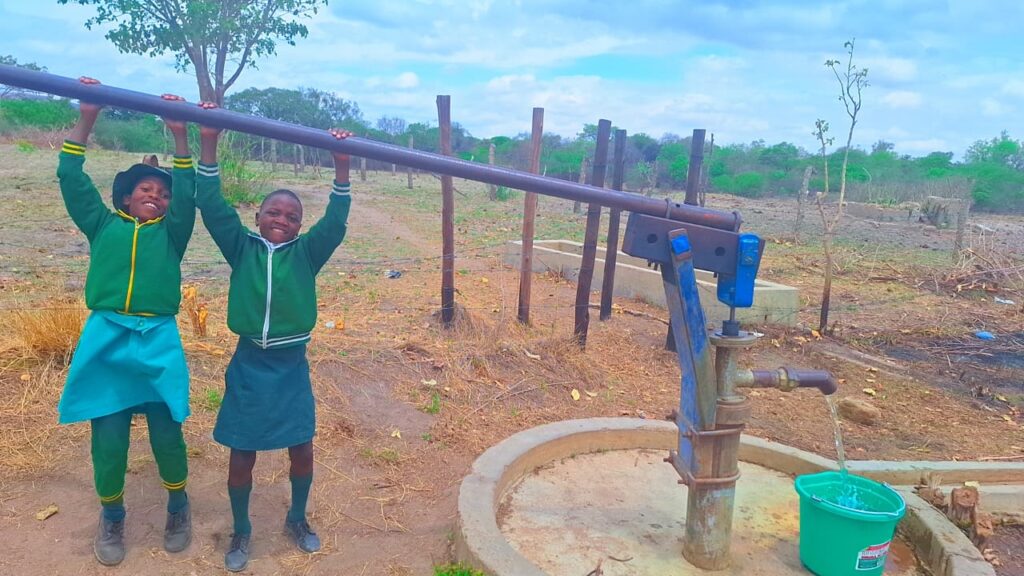
LINCZ PROJECT IMPROVES COMMUNITY AND SCHOOL’S ACCESS TO SAFE WATER
Water is a vital need in the survival of all living organisms and the United Nations through its Sustainable Development Goal number 6 states that access to safe water, sanitation and hygiene is the most basic human need for health and well-being. For the past 2 and a half years, the community in Ward 6 Khozi village Gwanda District has been grappling with errant supply of safe water as the borehole that used to supply them broke down. The situation was exacerbated by the poor rains received last year which put a strain on the available alternative water sources finally leading them to their dry up.
Khozi village borehole was the major source of water for the community and the local primary school. The breakdown of the borehole meant that community and the school resort to unsafe sources of water such as that from unprotected wells on riverbeds. A community member, Miss Simiso Sibanda, highlighted that Khozi community travelled a distance of approximately 5km to the nearest Mpambe stream to fetch water which was unappealing in color and smell. The heat experienced in the months August, September, October and November did not make it any better especially for school going children as they had no source of water close to the school premises. They were bringing water from their homes to enable the cleaning of toilets after school. They were further forced to drink water from the various unprotected sources for them to stay hydrated exposing them to diarrheal infections and were susceptible to communicable waterborne and water related infections such as cholera, dysentery and typhoid.
The BIC-CDS trained ward waterpoint committee was important in the selection of the borehole to be repaired and rehabilitation of the Khozi borehole. The pump minder, Mr Lloyd Ncube, was also instrumental in making a compilation of materials that were needed for the repair of the borehole. The process of repair involved the purchase and replacement of materials that were worn out in the borehole. The school’s Deputy Headmistress, Miss Moyo was thankful to BIC-CDS and the community leadership for the health hazard averted. She put much emphasis on the importance on the issue of the cleaning of toilets which are now cleaned daily as compared to before the borehole was repaired where the school toilets could go for days without being cleaned.
“Us as the school staff on behalf of the school pupils would like to thank BIC-CDS for helping with the borehole repairs so that we have easy access to safe water nearby. The pupils were now bringing water from their homes which was used to clean toilets after school but this was not enough as the toilets were always dirty. As it stands now, with an access to water nearby the cleaning of toilets has improved, the school feeding programme is continuing and us as staff no longer have to travel long distances in order to fetch water for use in our cottages.” Deputy Headmistress Miss Moyo.
The borehole repaired that is now benefitting both humans and livestock is currently being utilized by both the community and Khozi Primary school. It is benefitting a total number of 40 households, 96 students and an approximate number of 110 cattle, 240 goats and 60 donkeys.